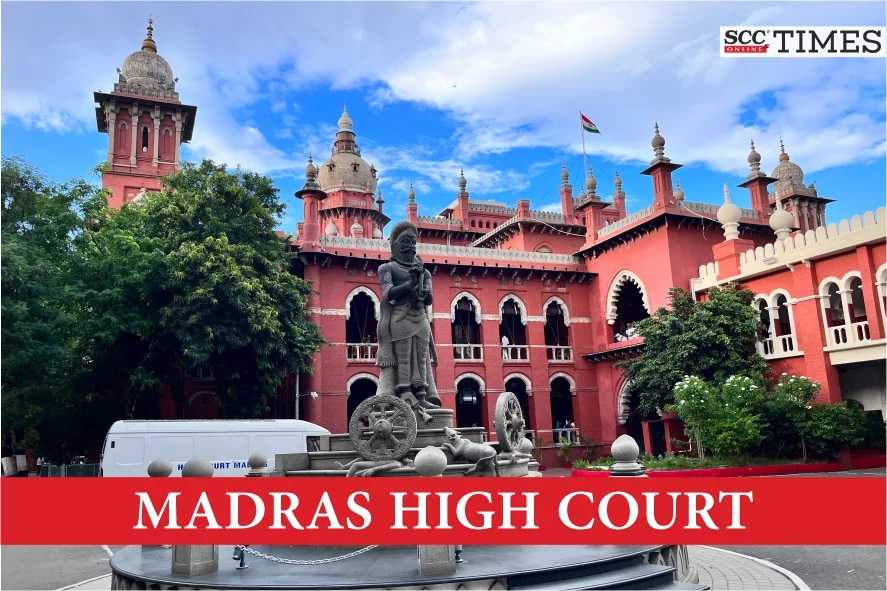Madras High Court: In a writ petition filed to direct the District Collector to exhume the body of the petitioner’s husband from K.K. Road Mukti burial ground and consequently direct the Director of Medical Education and the Dean, Villupuram Government Medical College Hospital to conduct a re-postmortem by a team of two doctors who have Master’s degree in Forensic Medicine attached to two different Medical College Hospitals in the State, R. Sakthivel, J. has given the following directions:
- District Collector was directed to exhume the body of the petitioner’s husband.
- Director of Medical Education and Dean, Villupuram Govt. Medical College Hospital were directed to conduct re-postmortem with a team of two Doctors who have master’s degree in forensic medicine, one from Madras Medical College, Chennai and another from KAP Vishwanathan Government Medical College, Trichy, at Villupuram Govt. Medical College Hospital.
- While conducting re-postmortem, they must adhere to the norms and directions of this Court issued in Santhosh v. District Collector, 2020 SCC OnLine Mad 5541.
- If re-postmortem needs to be done on the spot, X-Ray examination was directed to be done mandatorily to find out the antemortem injuries, if any, on the deceased’s body.
-
Home Secretary, Director General of Police, Inspector General of Police and Superintendent of Police were directed to secure all the CCTV footages of the Villupuram Taluk Police Station pertaining to the time between morning 06.00 a.m. of 09-04-2024 and evening 06.00 p.m. of 11-04-2024.
Background:
According to the petitioner, her husband, aged 43 years, was taken into custody by the Sub-Inspector of Police on 10-04-2024 from his workplace without following the guidelines issued in D.K. Basu v. State of W.B., (1997) 1 SCC 416. The petitioner’s husband was illegally detained and subjected to custodial torture by the police personnel including the Sub-Inspector of Police. Consequently, the petitioner’s husband sustained injuries that deteriorated his health. Upon realizing the deteriorated health condition of the petitioner’s husband, he was handed over to his employer and was advised to take treatment. Post first aid at the Government Primary Health Care Center, the petitioner was referred to Government Medical College Hospital. The petitioner’s husband informed her that he was subjected to custodial torture by 4 police personnel including the Sub Inspector by using lathis and by kicking and stamping him while wearing boots. The petitioner observed visible marks and injuries on his face and chest. He was crying in pain. The petitioner rushed him to the nearby Government Public Hospital, where he was declared ‘brought dead’ on the same day i.e., 10-04-2024.
Thereafter, the death was intimated to the Police. The petitioner and her family members were not permitted to see the deceased’s body. Ten police personnel from the Police Station took the petitioner to the Police Station and obtained her signatures on blank papers. Then, the deceased’s body was taken to Government Medical College Hospital, for autopsy. Postmortem was conducted within 30 minutes and the body was handed over quickly. Police personnel pressurized not to bury but cremate the body. However, as per the petitioner’s customary practice, the deceased’s body was buried on 11-04-2024 at Mukti Burial Ground. As they returned home, police personnel came home and pressurized them to exhume and cremate her husband’s body.
Thereafter, a case was registered under Section 174 of Code of Criminal Procedure, 1973 (CrPC) and the petitioner preferred complaints to the Superintendent of Police, requesting him to sanction and conduct re-postmortem examination. However, no action was taken in this regard. Therefore, the present petition was filed.
Analysis and Decision:
After noting the facts of the case, the Court said that if the petitioner’s husband was not feeling well while he was under the custody of the police, they themselves would have taken him to the hospital, which was not done in the case at hand. No Police personnel accompanied the petitioner’s husband to the Primary Health Center, which creates a serious suspicion around the death of the deceased. Thus, Section 176 inquiry is essential to unearth the truth.
Thus, the Court viewed that the suspicion of the petitioner that her husband died of custodial torture is reasonable and cannot be brushed aside easily. For the same reason, the enquiry contemplated under Section 176 of CrPC is also essential to clear the clouds and unearth the truth. It would not cause any prejudice to the respondents.
Further, the Court remarked that if re-postmortem is conducted and the result negatives the contention of the petitioner, it would enhance the reputation of the police among the public.
[Anju v. Home Secretary, 2024 SCC OnLine Mad 1212, Order dated 17-05-2024]







